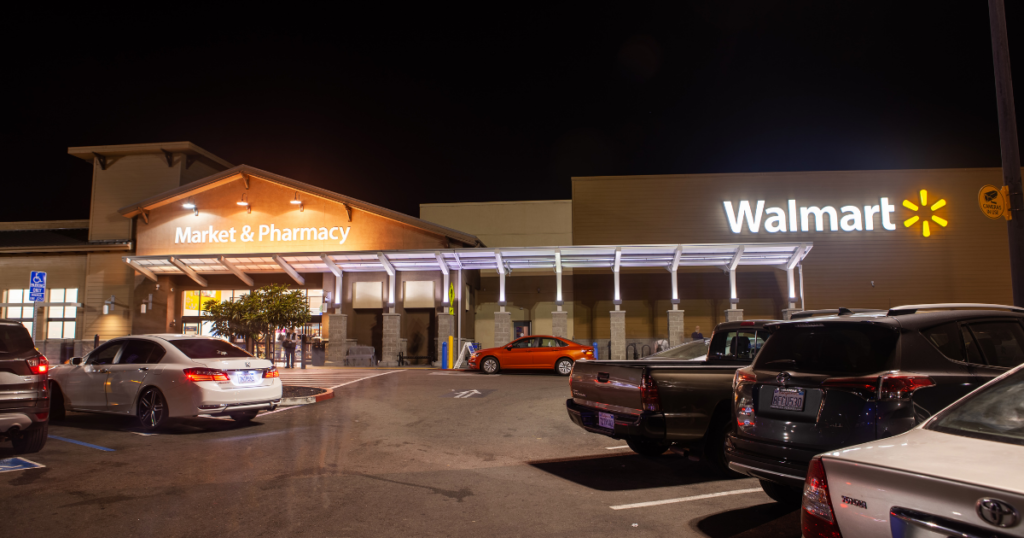The services, infrastructure, and amenities funded by property taxes increase our quality of life and help businesses succeed. But large, multi-national big-box retailers are increasingly turning to “dark store theory,” a dubious tax scheme to manipulate the system and get out of paying what they should. In 2019, MECEP published a report assessing the impact of this growing corporate practice in Maine in which big box stores challenge local property tax assessments to seek dramatic reductions to their property tax bills. That report surveyed the 25 towns with the highest retail sales and found 17 had box store appeals of their property tax valuations and that companies were requesting valuations to be reduced by 34 percent on average.
Two and a half years later, box stores continue to seek lower property tax bills by arguing their open and successful retail properties should be valued the same as abandoned shopping centers that have lost economic value. While some towns have settled and offer reductions to property tax bills, others are choosing to challenge the box store appeals. Both approaches are costly. The former reduces the property taxes the town is collecting; and the latter involves a lengthy legal process requires that towns not only pay costs for representation, but also risk repayment of property taxes in the event that they lose their case.
A bill before the taxation committee sponsored by Representative Ann Matlack seeks to solve this problem. The bill, An Act Relating to the Valuation of Retail Sales Facilities, amends the rules of assessment to make it clear that retail properties should be assessed the same as other open retail facilities, and not the same as abandoned, economically unviable locations.
In the meantime, big-box retailers around the state continue to try to reduce what they owe using “dark store theory” and shift more costs onto local property taxpayers. Below is an updated summary on the status of box store assessment appeals filed since our 2019 report. Five of the seven towns have cases awaiting a hearing with the State Board of Property Tax Review.
Augusta
Walmart, Sam’s Club, Home Depot, and Lowes all appealed their valuations in fiscal year 2021. The city settled with Lowe’s, granting some but not all of the reduction it requested. The city denied the request of Walmart, Sam’s Club, and Home Depot. Walmart and Sam’s Club appealed the city’s decision and are awaiting a final decision on the valuation from the State Board of Property Tax Review.
Brewer
After withdrawing its fiscal year 2019 request for a lower assessment, Walmart has filed appeals of its fiscal year 2020 through 2022 tax assessments. For fiscal year 2020, Walmart appealed its $15.1 million assessment seeking $11 million instead, and for fiscal year 2021 the company appealed the town’s $15.3 million assessment and seeks a $13 million assessment. For fiscal year 2020 and 2021, the appeals are awaiting a determination by the State Board of Property Tax Review. Walmart has filed another appeal for fiscal year 2022, seeking a $11.2 million assessment over the city’s assessment of $15.3 million. The city’s assessor has not yet made any action on this most recent appeal.
Brunswick
Following Walmart’s valuation appeals for fiscal years 2018 and 2019, the company again appealed its assessment for fiscal year 2020. The company was seeking a reduction in property assessment from $17 million to $11 million. All these appeals were settled last year in mediation between Walmart and the town at a value of $16.2 million for all three fiscal years.
Ellsworth
Following Walmart’s valuation appeals for fiscal years 2018 and 2019, Walmart filed additional appeals for fiscal years 2020, 2021, and 2022. Walmart has requested a $10 million valuation for its property which the city assesses to be worth $20 million. The parties are awaiting a hearing with the State Board of Property Tax Review to decide the outcome.
The city received two additional requests. For fiscal year 2022, Walgreens has requested a valuation of $1.7 million instead of the city’s assessed $3.3 million. For fiscal years 2021 and 2022, the Maine Coast Mall, anchored by Hannaford and TJ Maxx, has requested a valuation of $7.5 million instead of the city assessed $15 million. In both cases the property owners appealed to the State Board of Property Tax Review and the parties are awaiting a hearing date.
Falmouth
Falmouth received an appeal from Walmart for the fiscal year of 2021 seeking to reduce its valuation from $11.5 million to $6.8 million. The assessor denied the request and Walmart appealed to the State Board of Property Tax Review to decide the case.
Thomaston
Walmart has filed appeals for fiscal years 2018 through 2021. The company challenges the city’s $15.5 million valuation and requests a $7.4 million assessment. The parties are awaiting a hearing that has yet to be scheduled with the State Board of Property Tax Review.
Windham
For fiscal year 2021, Windham received an appeal from Walgreens seeking a $2.5 million assessment on its property which the town values at $3 million. The town granted nearly all the request, settling with a valuation of $2,508,300.




